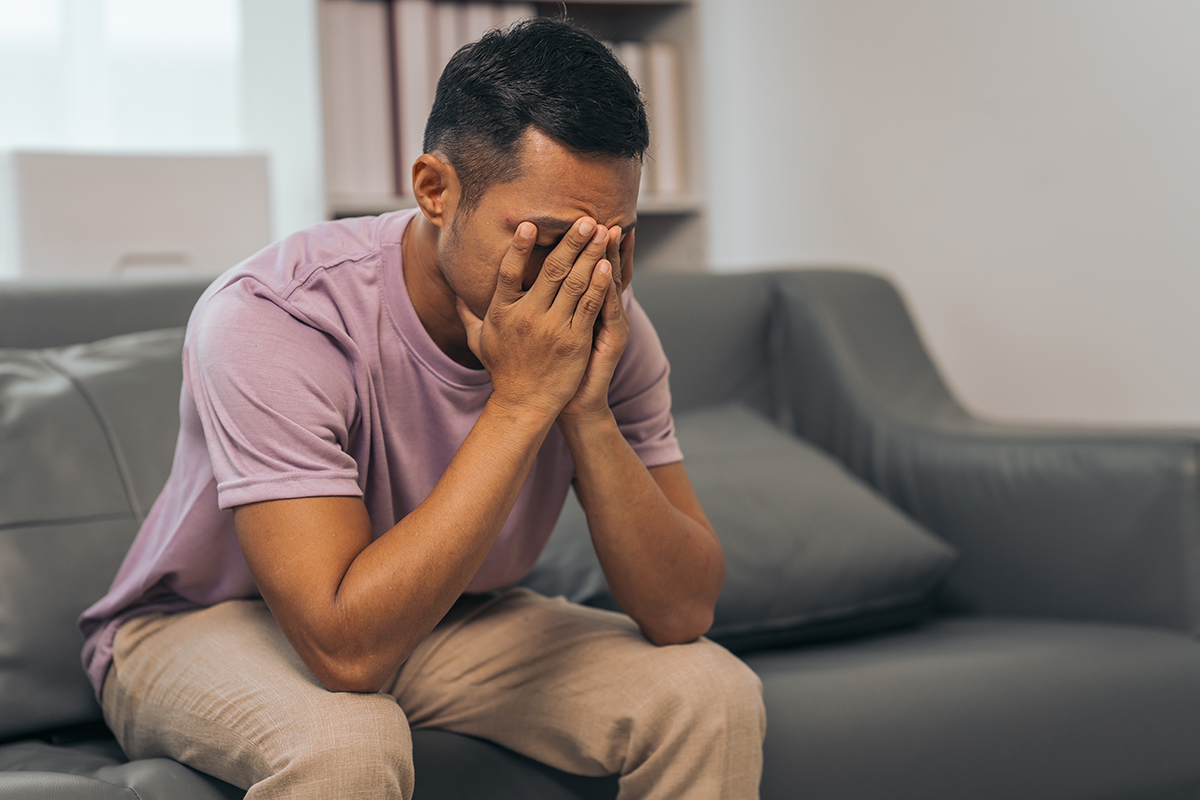Signs of IV Drug Use in Your Loved One

Seeing signs of IV drug use in someone you love can be scary and overwhelming. It’s not just the physical damage—it’s the emotional pain, fear, and worry that touch everyone involved. Woodland Recovery Center offers compassionate heroin addiction treatment in Mississippi to help individuals with addiction and their families begin to heal.
Our substance abuse treatment programs support the whole person, addressing both the physical effects of drug use and the emotional struggles that come with it. If you or someone you care about is experiencing signs of IV drug use, please reach out and get the support that’s needed.
The signs of IV drug use
What are the physical signs of IV drug use?
Identifying the physical signs of IV drug use can be crucial in offering support and preventing serious complications. Common indicators include track marks—small scars or bruises at injection sites—often found on the arms, hands, feet, or even the neck. Repeated injections may cause collapsed veins, hardened skin, or discoloration.
Other signs of IV drug use include abscesses, open wounds, and unusual swelling at injection sites. These symptoms may signal infections that require urgent medical attention. Observing these signs with compassion and concern is important, not judgment.
What are behavioral signs someone is shooting up?
Beyond physical symptoms, some behaviors may also warrant attention and concern. One of the most noticeable signs someone is shooting up is wearing long sleeves or pants in warm weather—a way to hide marks. You may also notice them avoiding close physical contact or becoming defensive when asked about their appearance.
Other behavioral red flags include increased secrecy, needing privacy more often, and sudden mood swings. If someone suddenly becomes irritable, anxious, or withdrawn, these could be signs that they are shooting up and struggling with the effects.
Additional signs that could indicate IV drug use
Outside of physical marks and behavioral shifts, you may notice paraphernalia related to injection drug use. The signs of shooting up include the presence of needles, burnt spoons, cotton balls, rubber tourniquets, and alcohol wipes. These items may be hidden but are often found in bags, drawers, or bathroom cabinets.
Unexplained financial troubles, missing household items, and fluctuations in energy or awareness may also indicate ongoing use. The signs of shooting up may look different depending on the drug, but the risks remain serious.
What are the signs of infection from IV drug use?
IV drug use carries a high risk of infection. The signs of infection from shooting up include redness, swelling, and pus near the injection sites. Fever, chills, or a general sense of being unwell may follow, which could indicate the infection has entered the bloodstream.
Long-term use can result in more serious conditions such as cellulitis, endocarditis (infection of the heart lining), or permanent nerve damage. Paying attention to these signs can make a big difference in preventing serious complications. Seeking early treatment is key to staying safe and healthy.
Are there health risks involved with IV drug use?
Injecting drugs greatly increases the risk of disease transmission and medical emergencies. Sharing needles or using non-sterile equipment can lead to HIV, hepatitis B, and hepatitis C. These infections can have lifelong effects and may go undetected without proper testing.
IV drug use can also carry immediate risks, including an increased chance of overdose, especially with substances like fentanyl. Health challenges such as infections, abscesses, and bloodborne illnesses can affect anyone, even people who inject for the first time. While these dangers are real, so are the possibilities for healing and recovery, and there is always hope for a better path forward.
Why is early intervention so necessary?
When it comes to IV drug use, early intervention can be life-saving. Catching the signs early helps avoid serious infections, disease transmission, and overdose. The sooner someone enters treatment, the greater their chance of avoiding long-term complications.
Approaching your loved one with concern, not confrontation, is key. Many people struggling with addiction feel isolated or ashamed. A supportive conversation may be the first step toward change.
How does Woodland Recovery Center treat IV drug use?
At Woodland Recovery Center, we provide compassionate, evidence-based care for people using IV drugs. Our substance abuse treatment programs address not just the substance use but the mental, emotional, and physical toll that comes with it.
Treatment plans include:
- Medically supervised detox
- Addiction therapies, such as individual and group therapy
- Family involvement and education
- Holistic support for physical and mental health
We also work closely with clients to manage infections, address trauma, and build relapse prevention skills. Many clients struggling with IV drug use face co-occurring mental health challenges like anxiety, depression, or PTSD. Our team understands the unique needs of each person and builds treatment accordingly.
If you’re looking for help, we invite you to explore our specialized programs that address the full scope of IV drug-related issues. Our heroin addiction treatment offers compassionate care tailored to those affected by injection drug use.
For those exposed to the dangers of synthetic opioids, our fentanyl addiction treatment program provides medical support and relapse prevention tools. We also offer opioid addiction treatment designed to support recovery from all forms of opioid misuse, including those involving IV use.
See the signs, choose recovery: Call Woodland Recovery Center today
Recovery is possible, and getting help early can make a big difference in your loved one’s future. The admissions consultants at Woodland Recovery Center are dedicated to guiding you through treatment options, assisting with insurance verification, and thoughtfully addressing all your questions.
If you’re worried about someone you love, now is the time to reach out. Call 662.222.2989 or use our online contact form to get started today. Healing begins with hope, and we’re ready when you are.


